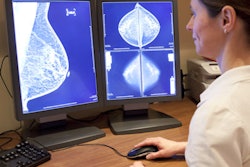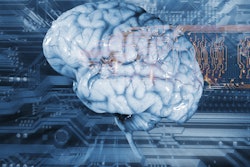Dear AuntMinnieEurope Member,
How can radiology ensure success in the era of artificial intelligence (AI)? This is one of the most urgent questions facing the medical imaging community today.
Dr. Andreas Gutzeit, a general radiologist who makes no claims to be an AI expert, is convinced that better patient communication is essential if the profession is to thrive in the future. For his guest editorial, go to the Imaging Informatics Community. Also, don't miss our news report about the patient's perspective on AI, based on research from the Netherlands.
Given the huge uncertainty created by Brexit, "Radiologists without borders" may seem like a distant dream, but this was the focus of an intriguing professional challenges session at ECR 2019. Prof. Paul Parizel, PhD, past president of the European Society of Radiology, was among the speakers.
As a screening modality, digital breast tomosynthesis (DBT) can significantly reduce false-positive recalls, and it has a key role in the diagnostic workup of mammographic lesions, according to a new study from the U.K. published in Radiology this week. Visit the Women's Imaging Community.
Meanwhile, it's all change in Russia. A five-year road map for radiology services has been produced for the Moscow region, and we've interviewed Prof. Sergey Morozov, PhD, about the implications.
CT is no longer sold as a system but as a solution, with a raft of software tools to maximize efficiency of use and to support dose optimization, writes our columnist Steve Holloway. He's identified a series of European market trends that are well worth bearing in mind.
The U.K. Royal College of Radiologists has published its annual workforce report on clinical oncology. The findings are quite revealing.
Also, I'm sure all Spanish speakers will enjoy the first of our new series of case reports published in Spanish. Other cases will follow in the coming weeks.



















